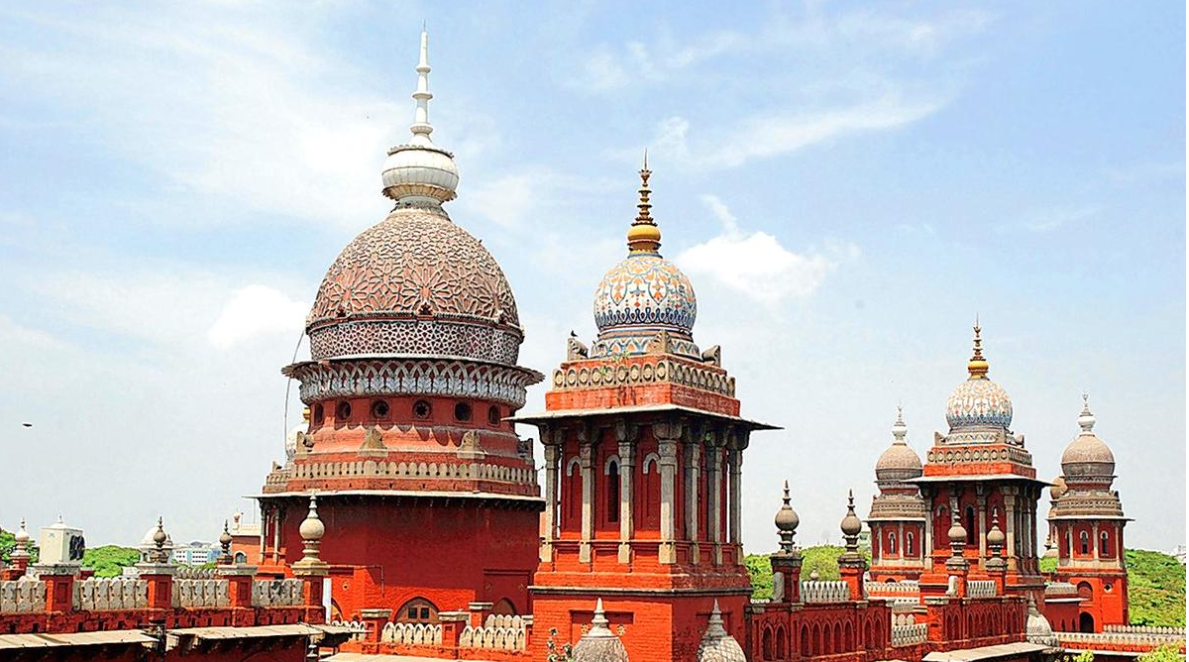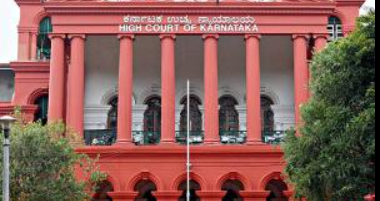Plea in Madras High Court to Repatriate:-
In a case that has stirred significant concern and debate, a plea has been filed in the Madras High Court seeking the repatriation of an Indian national who is facing the death sentence in Saudi Arabia. The man, a Tamil Nadu native, was convicted in 2008 for the murder of a fellow Indian. Having spent the last 16 years in a Saudi Arabian prison, his fate now hangs in the balance as his family and legal representatives push for his return to India.
This article delves into the intricacies of the case, the legal and diplomatic challenges involved, and the broader implications for Indian nationals working abroad. We will explore the background of the case, the arguments presented in the plea, the response from Indian authorities, and the potential outcomes of this high-stakes legal battle.
Background: The Crime and Conviction
The case dates back to 2008 when the Tamil man, whose identity is being withheld for privacy and legal reasons, was found guilty of murdering another Indian national in Saudi Arabia. The incident reportedly stemmed from a personal dispute that escalated into violence, resulting in the death of the victim. The Saudi Arabian legal system, known for its stringent application of Islamic law (Sharia), quickly processed the case, leading to the man’s conviction and subsequent sentencing to death.
The Incident
According to reports, the accused and the victim were both migrant workers in Saudi Arabia, employed in the construction sector. The altercation that led to the fatal incident allegedly arose over a financial dispute. Witnesses stated that the argument quickly turned physical, culminating in the accused striking the victim with a blunt object, leading to the latter’s death.
The Saudi authorities arrested the accused shortly after the incident. During the trial, which was conducted in accordance with Sharia law, the court found the accused guilty of murder and sentenced him to death. The death sentence was upheld by the higher courts in Saudi Arabia, leaving the accused with limited legal options within the Saudi judicial system. 
The Imprisonment
Since his conviction, the accused has been imprisoned in a Saudi Arabian jail, enduring 16 years of incarceration under harsh conditions. His family in Tamil Nadu has been tirelessly campaigning for his release, arguing that the trial was unfair and that he was not provided with adequate legal representation. Over the years, the family has appealed to various Indian authorities and human rights organizations, seeking intervention in the case.
The Plea in Madras High Court: Legal Arguments and Humanitarian Concerns
The recent plea filed in the Madras High Court marks a significant development in the case, as it brings the matter to the attention of the Indian judiciary. The petitioners, including the family of the accused, have raised several legal and humanitarian arguments in their plea, urging the court to direct the Indian government to take diplomatic action to secure the man’s repatriation.
Legal Arguments
- Violation of Fair Trial Principles: The plea argues that the accused was not afforded a fair trial in Saudi Arabia. The petitioners claim that he did not have access to adequate legal representation, and there were significant language barriers during the trial proceedings. They contend that these factors compromised his ability to defend himself effectively, leading to an unjust conviction.
- Absence of Legal Aid: The plea highlights the lack of legal aid provided to the accused during the trial. It argues that the Indian government, as a matter of diplomatic and consular responsibility, should have ensured that the accused was provided with competent legal counsel. The failure to do so, according to the petitioners, constitutes a breach of the accused’s rights under international law.
- Diplomatic Intervention: The petitioners urge the Madras High Court to direct the Indian government to engage in diplomatic negotiations with Saudi Arabia to secure the repatriation of the accused. They argue that India has a duty to protect its citizens abroad, especially in cases where there are concerns about the fairness of legal proceedings.
- Humanitarian Grounds: The plea also emphasizes the humanitarian aspect of the case, citing the accused’s prolonged imprisonment and the emotional and psychological toll it has taken on him and his family. The petitioners argue that after 16 years in prison, the accused deserves clemency and should be allowed to return to India.
Humanitarian Concerns
The plea underscores the severe conditions under which the accused has been held for over a decade. Saudi prisons are known for their strict regimes, and the prolonged isolation, coupled with the uncertainty of his fate, has reportedly had a detrimental impact on the accused’s mental and physical health.
The petitioners argue that continuing to keep the accused in such conditions violates basic human rights principles, particularly the right to humane treatment and dignity. They call on the Madras High Court to recognize these humanitarian concerns and to use its influence to advocate for the accused’s release on compassionate grounds.
Response from Indian Authorities: Diplomatic and Legal Challenges
The Indian government, through its diplomatic channels, has historically engaged with foreign governments to protect the rights and interests of Indian nationals abroad. However, cases like this, involving capital punishment and complex legal systems, pose significant challenges.
Diplomatic Efforts
The Indian government has reportedly made several representations to the Saudi authorities regarding the case. Diplomatic efforts have included seeking clemency for the accused and exploring options for a possible transfer of the prisoner back to India. However, these efforts have faced obstacles, given the strict application of Sharia law in Saudi Arabia and the sensitivity of the case.
Legal Hurdles
- Sharia Law: One of the primary challenges in this case is the application of Sharia law in Saudi Arabia, which governs criminal justice and includes provisions for capital punishment. The Saudi legal system operates independently, and foreign governments have limited influence over its proceedings. The Indian government’s ability to intervene is constrained by the legal framework in Saudi Arabia, which prioritizes its domestic law over international diplomatic pressure.
- Bilateral Relations: While India and Saudi Arabia enjoy strong bilateral relations, cases involving legal disputes and capital punishment can strain diplomatic ties. The Indian government must balance its efforts to protect its citizens with the need to maintain positive relations with Saudi Arabia. This delicate balancing act complicates the pursuit of repatriation or clemency for the accused.
- Precedent and Sovereignty: Another challenge lies in the precedent such a case could set. If Saudi Arabia were to grant clemency or allow the repatriation of the accused, it could be seen as undermining its legal system’s sovereignty. This concern makes it difficult for the Saudi government to accede to diplomatic requests, as it could be perceived as a compromise on its legal principles.
Broader Implications: The Plight of Indian Migrant Workers
This Plea in Madras case highlights the broader issue of the vulnerability of Indian migrant workers in foreign countries, particularly in the Gulf region. Indian nationals constitute a significant portion of the workforce in countries like Saudi Arabia, the Plea in Madras United Arab Emirates, and Qatar. While these workers contribute significantly to the economies of both their host and home countries, they often face challenging working conditions, legal uncertainties, and limited access to legal protection.
Plea in Madras Legal Vulnerability
Indian migrant workers in the Gulf region often find themselves in precarious legal situations. Language barriers, unfamiliarity with local laws Plea in Madras, and lack of access to legal counsel can leave them vulnerable to exploitation and unjust treatment. In cases involving serious criminal charges, such as the one in question, these vulnerabilities are exacerbated, leading to severe consequences, including long-term imprisonment or even the death penalty.
Plea in Madras Diplomatic Protection
The Plea in Madras case also underscores the importance of robust diplomatic protection for Indian nationals abroad. While the Indian government has mechanisms in place to assist its citizens, there is a need for greater resources and more proactive measures to ensure that Indian nationals receive fair treatment in foreign legal systems. This includes ensuring that they have access to legal aid, translation services, and timely consular support.

Human Rights and International Law
The Plea in Madras raises important questions about the intersection of international law, human rights, and domestic legal systems. While countries like Saudi Arabia have the sovereign right to enforce their laws, international human rights principles call for fair trials, humane treatment, and the right to life. The challenge lies in reconciling these principles with the realities of different legal systems, particularly in cases involving capital punishment.
Potential Outcomes: What Lies Ahead?
Plea in Madras As the Madras High Court considers the plea for repatriation, several potential outcomes could shape the future of this case and similar cases involving Indian nationals abroad.
Judicial Direction
- Court Order for Diplomatic Action: The Madras High Court could issue a directive to the Indian government to intensify its diplomatic efforts to secure the repatriation of the accused. This could involve direct negotiations with Saudi authorities or raising the issue at international forums.
- Humanitarian Grounds for Clemency: The court could recognize the humanitarian concerns raised in the plea and recommend that the Indian government pursue clemency for the accused based on his prolonged imprisonment and the conditions he has endured.
- Legal Assistance and Representation: The court could also call for the provision of enhanced legal assistance and representation for Indian nationals facing serious criminal charges abroad. This could involve establishing a dedicated legal aid fund or deploying legal experts to assist in such cases.
Diplomatic Negotiations
- Clemency or Sentence Commutation: Diplomatic negotiations could potentially lead to clemency for the accused or a commutation of his death sentence to a lesser penalty, such as life imprisonment. This would require significant diplomatic engagement and the willingness of the Saudi authorities to consider humanitarian factors.
- Repatriation Agreement: Another possible outcome could be the negotiation of a repatriation agreement, allowing the accused to serve the remainder of his sentence in India. This would require an agreement between the two governments and assurances that the sentence would be honored under Indian law.
Broader Reforms
- Strengthening Diplomatic Support: The Plea in Madras case could lead to broader reforms in the way India supports its nationals abroad. This could include enhancing the resources and capabilities of Indian missions in countries with large migrant populations, ensuring timely legal and consular assistance.
- Legal and Human Rights Advocacy: The case could also prompt increased advocacy for the rights of migrant workers and the need for fair legal processes in host countries. This could involve collaboration with international human rights organizations and efforts to raise awareness of the challenges faced by migrant workers.
Conclusion: A Case of Justice, Diplomacy, and Human Rights
The plea in the Madras High Court to repatriate the Indian national facing the death sentence in Saudi Arabia brings to the forefront the complex interplay of justice, diplomacy,Plea in Madras and human rights. It highlights the vulnerabilities of Indian migrant workers abroad and the challenges of navigating foreign legal systems. As the case unfolds, it will serve as a litmus test for the Indian judiciary’s commitment to protecting the rights of its citizens and the ability of diplomatic efforts to secure justice and humane treatment for those caught in the crosshairs of foreign legal systems.
The outcome of this case will not only determine the fate of one individual but will also have far-reaching implications for the thousands of Indian nationals working abroad, who may one day find themselves in need of similar protection and support. ALSO READ:- Telegram CEO Pavel Durov’s Arrest: Russia-France Ties Hit New Low, Moscow Says 2024






Simply wish to say your article is as amazing The clearness in your post is just nice and i could assume youre an expert on this subject Well with your permission let me to grab your feed to keep updated with forthcoming post Thanks a million and please carry on the gratifying work